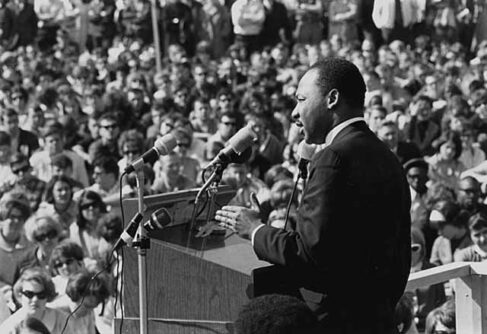There’s no more personal area of donation that giving an organ or body part. And, within this area, there’s a wide range of how demanding physically and emotionally the donation is. Some donations, like blood donations, seem easy and uncomplicated. Liver and kidney donations are physically strenuous for donors. Ads aimed at college men for sperm donation make it seem easy (and fun…) but at least some sperm donors later come to regret the emotional weight of having offspring unknown to them.
In the United States, we have a curious mix of laws and rules about whether it’s appropriate to make pecuniary gain one motive for donation of a body part.
For example, the National Organ Transplant Act prohibits payment for organs. FDA regulations prohibit payment for blood donations if the blood will be used for transfusions but permit payment for blood donations if the blood will be used for its plasma. Those who live near colleges or universities will have seen advertisements targeted at college women about the opportunity to sell their eggs for thousands of dollars while other advertisements invite college men to sell their sperm.
The Ninth Circuit Court of Appeals entered this controversial area earlier this month when it ruled that bone marrow donors may, in some circumstances, be compensated. Payment for bone marrow donation had been explicitly disallowed under the National Organ Transplant Act. When the act was passed in 1984, bone marrow was painfully aspirated from the bones of donors. Now about two-thirds of bone marrow donations take place by separating out cells that will grow into bone marrow from a donor’s blood. The Ninth Circuit ruled that this new process is more akin to a blood donation than an organ donation and therefore not encompassed by the National Organ Transplant Act’s ban on payment for organ donation. So it’s now possible, at least within the Western states encompassed by the Ninth Circuit, to compensate those who donate bone marrow through this new technique.
The question now is whether payment for bone marrow is both prudent and ethical, and what we think of various motives for making this very personal gift.
The Ninth Circuit case was brought by a coalition of those who wish to spur bone marrow donations through compensation and who were represented by lawyers from the Institute for Justice, which has posted videos about the case at its website.
One party to the coalition was the nonprofit More Marrow Donors, which is willing to offer donors $3000 vouchers that may be used for a scholarship, a housing allowance, or a gift in the donor’s name to another charity. The organization’s president, Shaka Mitchell, told me his group had made their mission to focus on the situation where a donor in a bone marrow registry, who had perhaps registered years before, was reluctant to go through the donation process now that he had been matched with a patient; Mr. Mitchell said, “Where we thought we could contribute is in boosting the follow-through rate where there is some attrition.”
When I asked Mr. Mitchell why More Marrow Donors did not intend simply offer cash to donors as the most enticing inducement to a reluctant potential donor, he replied:
That’s something the board will be discussing. It’s not off the table in perpetuity. We knew that we already faced myths and misconceptions about the concept of payment. People hear “cash for a body part” and they get squeamish about it. We thought, let’s come at this in a way that people will support and doesn’t seem like it’s profit-seeking.
So while Mr. Mitchell is attentive to the sensibilities of those with ethical concerns about paying for body parts, he doesn’t share their concerns. Mr. Mitchell argued:I have two responses to those concerns. One thing that comes to mind is that it was legal at the time the case began to give cash for blood, plasma, eggs, and sperm. So this idea isn’t coming out of nowhere. But the other thing is that we believe that getting some benefit for donation doesn’t lessen the benefit to the recipient, who is being given a chance at survival. You can’t put a price on that. Patients and their families don’t care if there was a payment to the donor.
In short, Mr. Mitchell and More Marrow Donors judge that compensation for marrow donors is not wrong, is consistent with other U.S. practices of payment for body parts, and may accomplish the tremendous good of enabling potentially life-saving donations.Others sharply disagree. I spoke also with Michael Boo, chief strategy officer for the National Marrow Donor Program, the nonprofit that maintains the Be The Match Registry, the nation’s largest registry of bone marrow donors. His organization was not party to the lawsuit, but he told me that it is firmly opposed to the possibility of compensation for donors:
We don’t support compensation for donors generally. First, we are concerned about the safety of patients and donors. To be sure the product is safe for recipients, we have the donor complete a form to learn if a prospective donor has high-risk behavior or a communicable disease. If they’re being compensated, we worry that prospective donors might not be fully truthful. Second, from a donor standpoint, donors may be exposed to greater-than-usual risks of injury from the donation process based on certain pre-existing conditions that they might be less inclined to disclose if they’re motivated by payment. But it’s an ethical issue too, not just a safety issue. We’re concerned that donors might expose themselves to risks for the sake of compensation.
Mr. Boo allowed that compensation might get some prospective donors to follow through with donations, but argued that the offer of compensation would actually diminish the total donor pool. He explained:Right now nine-and-a-half million people are willing to donate bone marrow without compensation. If we add only people interested in payment, or if people get the idea that this is something people do for payment rather than for altruistic reasons, we might diminish the total donor pool. Last year we added 650,000 people to the Be The Match Registry, of whom 250,000 were minorities for whom it’s harder to get a genetic match. Money spent compensating donors would be better spent adding people to the registry.
Mr. Boo here points out that how people act depends in part upon their interpretation of others’ actions; people are less inclined to make a gift of their bone marrow when they believe others are making a sale of their bone marrow.Questions surrounding payment for organs and body parts are only becoming more difficult as the technological possibilities of modern medicine become more complex. The inconsistent practices in the United States about payment for body parts reveals the complexity of the problem and the fact that there’s something plausible about quite different viewpoints on this question. Most law and policy in this area is at least a few decades old; the Ninth Circuit decision is occasion for revisiting this fraught area of public policy.





